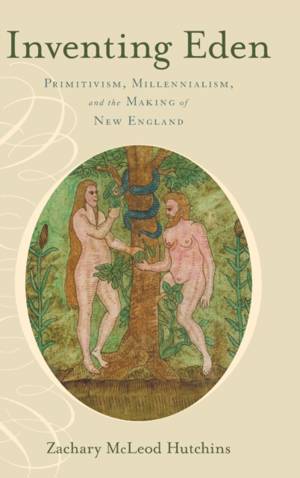
Bedankt voor het vertrouwen het afgelopen jaar! Om jou te bedanken bieden we GRATIS verzending (in België) aan op alles gedurende de hele maand januari.
- Afhalen na 1 uur in een winkel met voorraad
- In januari gratis thuislevering in België
- Ruim aanbod met 7 miljoen producten
Bedankt voor het vertrouwen het afgelopen jaar! Om jou te bedanken bieden we GRATIS verzending (in België) aan op alles gedurende de hele maand januari.
- Afhalen na 1 uur in een winkel met voorraad
- In januari gratis thuislevering in België
- Ruim aanbod met 7 miljoen producten
Zoeken
Inventing Eden
Primitivism, Millennialism, and the Making of New England
Zachary McLeod (Assistant Professor of English, Assistant Profes
Hardcover
€ 147,45
+ 294 punten
Omschrijving
Surveying English and colonial thinkers from William Shakespeare and John Milton to Anne Hutchinson and Benjamin Franklin, Inventing Eden tells how a belief in Eden shaped American literature, history, and culture.
Specificaties
Betrokkenen
- Auteur(s):
- Uitgeverij:
Inhoud
- Aantal bladzijden:
- 344
Eigenschappen
- Productcode (EAN):
- 9780199998142
- Verschijningsdatum:
- 7/08/2014
- Uitvoering:
- Hardcover
- Afmetingen:
- 157 mm x 242 mm
- Gewicht:
- 592 g

Alleen bij Standaard Boekhandel
+ 294 punten op je klantenkaart van Standaard Boekhandel
Beoordelingen
We publiceren alleen reviews die voldoen aan de voorwaarden voor reviews. Bekijk onze voorwaarden voor reviews.









